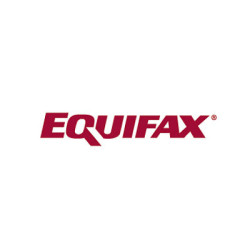Top Class Actions’s website and social media posts use affiliate links. If you make a purchase using such links, we may receive a commission, but it will not result in any additional charges to you. Please review our Affiliate Link Disclosure for more information.

A massive cybersecurity incident reportedly exposed the sensitive personal identification and financial information of more than 145 million people—nearly half of the U.S population.
“This case concerns the largest data breach involving personal and financial information in American history,” the Equifax class action lawsuit says. “Equifax, one of the three credit reporting companies used by thousands of businesses to assess the credit worthiness of customers and prospective customers, failed spectacularly in protecting that data.”
As a result, sensitive consumer information such as names, birth dates, Social Security numbers, drivers’ license numbers, address history and other financial information was allegedly accessed by unauthorized parties from May through June.
The Equifax class action lawsuit claims the damage caused by the Equifax data breach was compounded by the credit reporting agency’s “egregious cybersecurity failures before, during, and after the breach,” including: failing to employ an available security patch, not recognizing the data breach for more than three months, failing to implement security measures after the data breach, and failing to timely inform the public about the massive data breach.
The plaintiffs also challenge Equifax’s response to the data breach, including the confusing emails it sent to consumers about whether their information was compromised, and creating a credit monitoring service with a confusing message about whether users would be bound by an arbitration clause, and sending consumers a wrong link to have their credit frozen.
Equifax has offered a free credit freeze to help consumers protect themselves from identity theft. The credit freeze fee waiver is available until Nov. 21.
This new 323-page Equifax class action lawsuit seeks to consolidate dozens of data breach lawsuits that are currently pending throughout the country. At least 150 data breach lawsuits have been filed nationwide against Equifax so far.
The plaintiffs include individuals from all 50 states and the District of Columbia who allege they have experienced fraud after their sensitive personal information was compromised in the data breach.
The Equifax class action lawsuit asserts claims for violation of the Fair Credit Reporting Act, negligence, negligence per se, bailment, unjust enrichment, and violation of state consumer protection and/or privacy laws. The plaintiffs are seeking monetary damages, declaratory and injunctive relief, and other remedies allowed under the applicable laws.
The plaintiffs are represented by Kenneth S. Canfield of Doffermyre Shields Canfield & Knowles LLC; Roy E. Barnes, John R. Bevis and J. Cameron Tribble of Barnes Law Group LLC; Andrew N. Friedman, Douglas J. McNamara, Sally Handmaker and Eric S. Berelovich of Cohen Milstein Sellers & Toll PLLC; Adam J. Levitt, Mark A. DiCello, Amy E. Keller and Daniel R. Ferri of DiCello Levitt & Casey LLC; James Pizzirusso of Hausfeld; Norman E. Siegel, Barrett J. Vahle and J. Austin Moore of Stueve Siegel Hanson LLP; Archie I. Grubb II, W. Daniel “Dee” Miles III, Andrew E. Brashier, and Leslie Pescie of Beasley Allen Crow Methvin Portis & Miles PC; Pat A. Cipollone PC and Robert Gilmore of Stein Mitchell Cipollone Beato & Missner LLP; John Yanchunis and Marisa Glassman of Morgan & Morgan Complex Litigation Group.
The Equifax Data Breach Class Action Lawsuit is Allen, et al. v. Equifax Inc., Case No. 1:17-mi-99999-UNA, in the U.S. District Court for the Northern District of Georgia.
UPDATE: On July 30, 2018, Equifax Inc. asked a Georgia federal judge to dismiss claims brought by 10 small businesses in a massive data breach class action lawsuit because businesses cannot bring claims based on the alleged injuries of the business owners.
UPDATE 2: July 2019, a website has been established to inform Class Members of their rights under a $700 million Equifax data breach class action settlement.
UPDATE 3: July 2019, the Equifax data breach class action settlement is now open. Click here to file a claim.
UPDATE 4: On Nov. 19, 2019, the class action watchdog Center for Class Action Fairness filed an objection to the Equifax data breach class action settlement, claiming that the attorney fee request should be reduced and that the settling parties suppressed the claims process.
UPDATE 5: On Dec. 20, 2019, a federal judge gave a $425 million Equifax class action settlement final approval despite objections from consumer advocacy groups.
ATTORNEY ADVERTISING
Top Class Actions is a Proud Member of the American Bar Association
LEGAL INFORMATION IS NOT LEGAL ADVICE
Top Class Actions Legal Statement
©2008 – 2024 Top Class Actions® LLC
Various Trademarks held by their respective owners
This website is not intended for viewing or usage by European Union citizens.















665 thoughts onEquifax Data Breach Class Action Filed on Behalf of Nationwide Class
I was informed about this a long time ago but never heard anything else.
Please add me